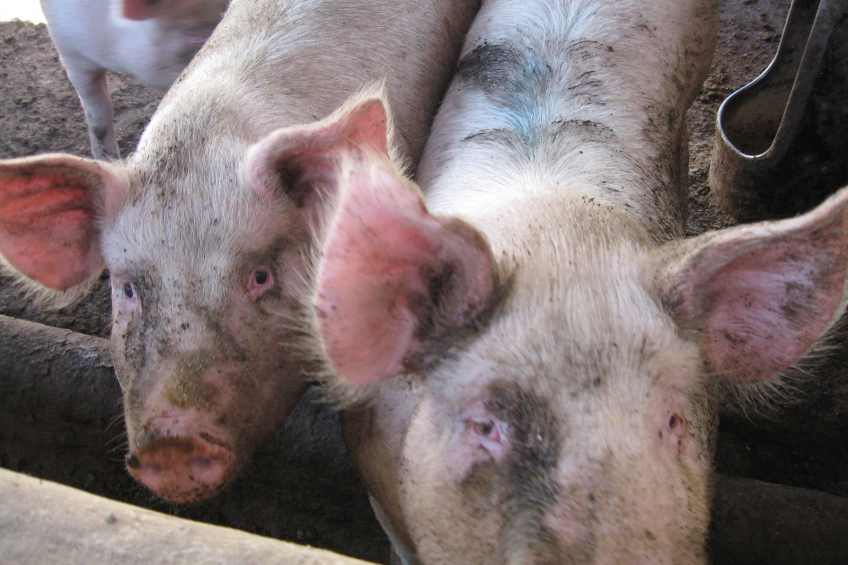PRRS to be focus of data presentations

New data from Europe and Asia supporting MSD Animal Health’s (known as Merck Animal Health in the USA and Canada) Porcilis PCV and Porcilis PRRS vaccines will be introduced at the 6th Asian Pig Veterinary Society (APVS) Congress 23 September – 25 September 2013 in Ho Chi Minh City, Vietnam.
MSD AH said that data related to its swine products and product-related services will be presented at APVS.
Attendees will be introduced to new data from Europe and Asia supporting the company’s Porcilis PCV and Porcilis PRRS vaccines, covering various aspects on immunology and efficacy.
“The APVS Congress provides the ideal location to highlight key data related to the deadliest viruses that cause significant losses to the pig industry,” states Rob Barclay, vice president, Asia Pacific MSD Animal Health. “Maintaining a healthy herd is vital to the Asian pig industry and we are committed to working with farmers to ensure the health and well-being of their animals.”
Abstracts selected for oral and poster presentations represent advances in swine vaccination and herd health, as follows:
Oral presentations
• Porcine circovirus type 2 diagnostic laboratory trends: relationship between year and production phase (Oral P284)
• Virological and production evaluation of Circumvent PCV M administered during and early field infection (Oral P285)
• Comparison of One- And Two-Dose Vaccines Against Porcine Circovirus Type 2 in Piglets (Oral P302)
• The Efficacy of A Type 1 PRRS Vaccine (Based on the Dv Strain) Tested in Piglets Under Field Conditions in Japan (Oral P243)
• Safety and Efficacy of Porcilis PRRS Vaccine in Vietnam (Oral P239)
• PRRS stabilisation in a high pig density area, by intradermal mass-vaccination (Porcilis PRRS) and strict biosecurity measures (Oral P269)
• Synchronization of estrus and ovulation by an altrenogest/buserelin treatment in gilts results in good fertility and prolificacy following a single fixed time AI. (Oral P175)
Poster presentations
• A safe and efficacious MLV vaccine can contribute to the control and eradication of PRRSV (Poster P169)
• Benefits of novel intradermal vaccination with a modified live vaccine against PRRS (Poster P170)
• Effect of MLV PRRSV (Porcilis PRRS) Vaccination in the Control of an Acute PRRS Field Virus Infection in a Philippine Commercial Swine Farm (Poster P167)
• Presence of Both PRRS Type 1 and Type 2 Antibodies in Philippine Commercial Swine Farms (Poster P166)
• Comparison of Interleukin-10 Levels in Pigs Vaccinated with Modified Live PRRSV Vaccines of Type 1 and Type II Genotypes (Poster P119)
• Reduction of mortality and culling by the use of Porcilis PCV and/or Porcilis Glaesser (Poster P174)
• Laboratory studies on Circumvent PCV M: combination Mycoplasma Hyopneumoniae and porcine circovirus type 2 vaccine (Poster P287)
• Field evaluation of Circumvent PCV M: combination Mycoplasma Hyopneumoniae and porcine circovirus type 2 vaccine (Poster P286)
• Diagnostic laboratory survey of porcine circovirus type 2 and Mycoplasma Hyopneumoniae maternally-derived antibodies (Poster P288)
• Altering the PCV2 vaccination program as a means of improving productivity (Poster R27)
• A single fixed time insemination following ovulation induction by buserelin injection at 86 hours after weaning in sows generates good fertility and prolificacy (Poster P177)
• Evaluation Of The Benefits of AIAO/Batch Management System Implementation in Philippine Swine Farms (Poster P168)
In addition to the presentation of selected abstracts, MSD Animal Health will host a satellite symposium for industry professionals attending the Congress:
Monday, September 23, 16:45– 17:45 Room: Crystal 3 – “PRRS – New Developments Impacting Vaccination in Asia”
During this seminar, attendees will have the opportunity to learn new developments in PRRS infection and control mechanisms. Trial results specific to Vietnam, Thailand and Japan will be presented. Presentations will be given by Dr. Paolo Martelli, DVM, Professor of Internal Medicine (Veterinary Clinical Medicine) at Parma University, Department of Veterinary Sciences and Dr. Rika Jolie, Global Technical Director, MSD Animal Health.







